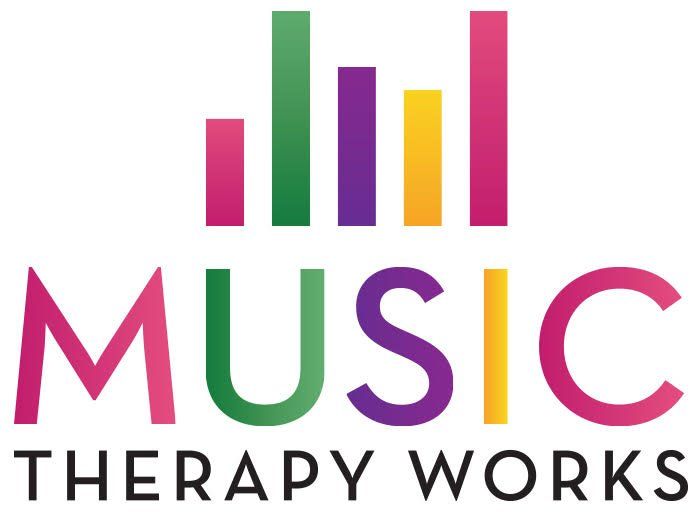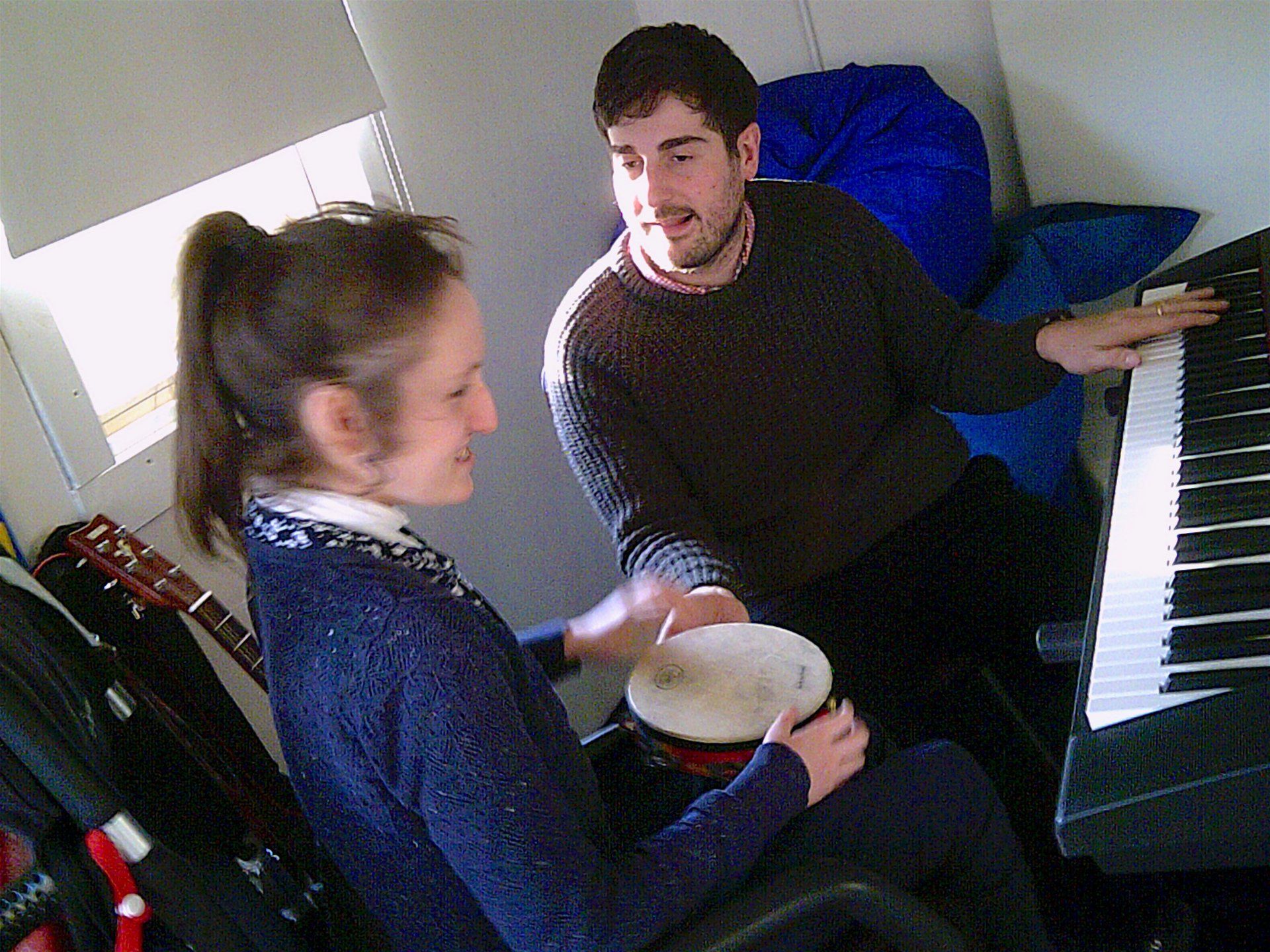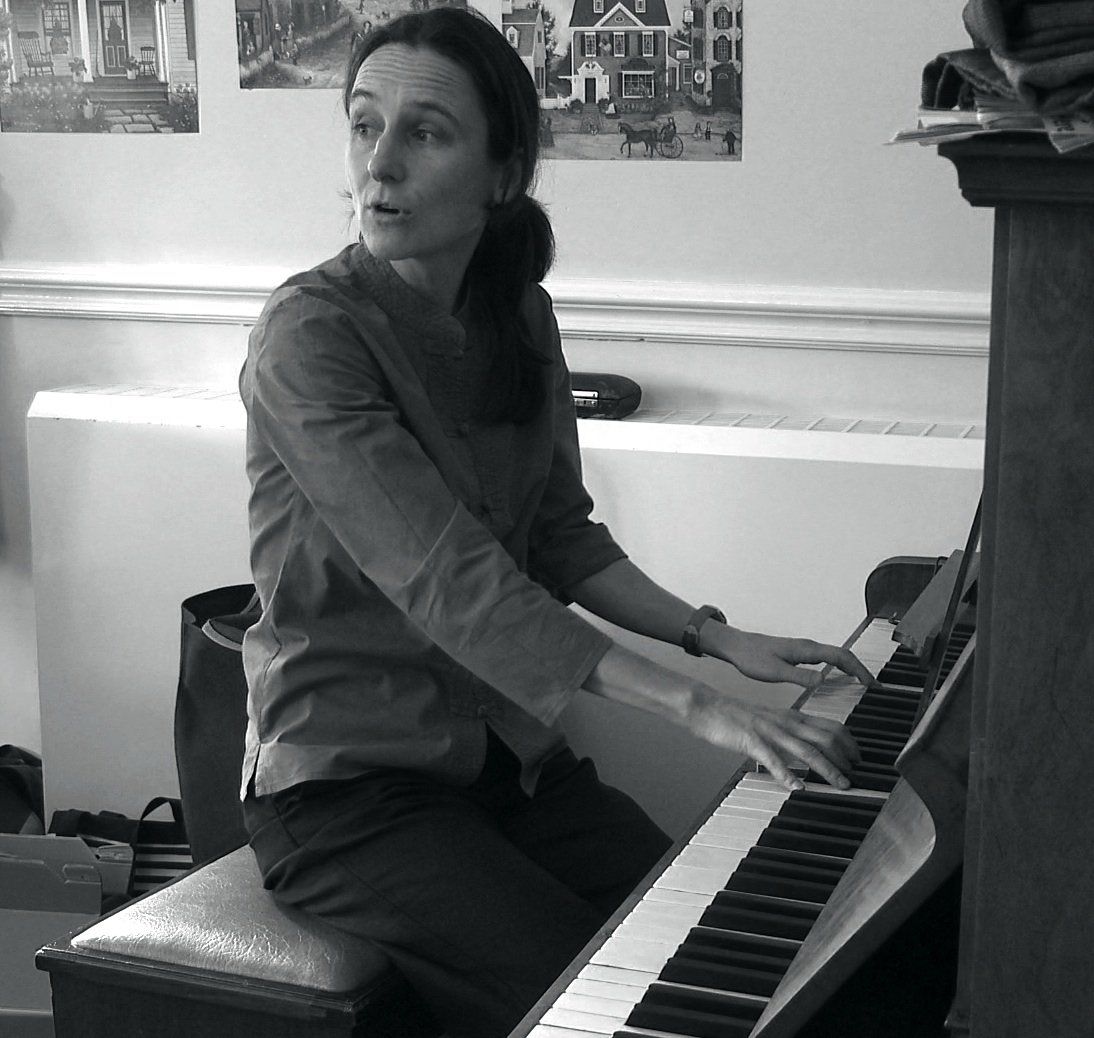KATIE'S STORY
MR AND MRS D'S STORY
KATIE'S STORY
Katie has been diagnosed with a severe developmental delay and a rare genetic disorder which means she has not reached the cognitive and developmental milestones expected of a neurologically typical young woman. She has difficulty with cognitive processing and performing physical tasks such as lifting objects, walking and talking. Katie attends a college for young adults with various forms of special educational needs and was referred to music therapy in September 2016. Since then, she has attended individual music therapy sessions for 30 minutes on a weekly basis.
Through developing a musical relationship with the therapist Katie has been able to:
- Increase her independence through developing abilities to touch instruments and express clear choices
- Acknowledge, express and explore her feelings through the non verbal medium of music. This has provided both emotional release and excitement
- Develop her ability to regulate her emotions
- Develop her vocal skills
- Engage in positive social interaction and develop her abilities to communicate and relate
Katie’s college tutors say:
During music therapy, Katie communicates using her voice and has said “I did it!”. Usually she is almost exclusively non-verbal, so this is encouraging and significant.
MR AND MRS D'S STORY
Mr and Mrs D live together in a nursing home. Both have advanced dementia with severe memory and speech impairment. They also have a range of medical and nursing needs, including assistance with mobility and self-care, which are increasing as the dementia progresses.
Mr and Mrs D have no children or close family, and were referred for music therapy by their attorney with the aim of improving their quality of life.
Music therapy sessions take place once a fortnight for 45 minutes in Mr and Mrs D’s shared room in the home. Despite their cognitive impairment, they will join in familiar songs with energy and enthusiasm, reflecting the fact that Mr D was a keen amateur singer who loved to perform.
With careful support from the therapist, working at a gentle pace, Mr and Mrs D also take part in musical improvisations using various hand-held instruments, music therapy supports:
- Physical and sensory stimulation including responses to rhythm, pulse and timbre
- Promotion of spontaneity and self-expression which helps to maintain a sense of autonomy and purpose in the care home environment
- Their wellbeing by increasing opportunities for engagement, stimulation and social interaction. Mr and Mrs D express much appreciation of music therapy
- Mr and Mrs D’s attachment and identity as a couple by using songs and music to both reinforce memories from the past, allowing them to maintain their relationship in the present
Mr and Mrs D also have the opportunity to socialise with other residents through joining in the music therapy groups which take place regularly in the home.


